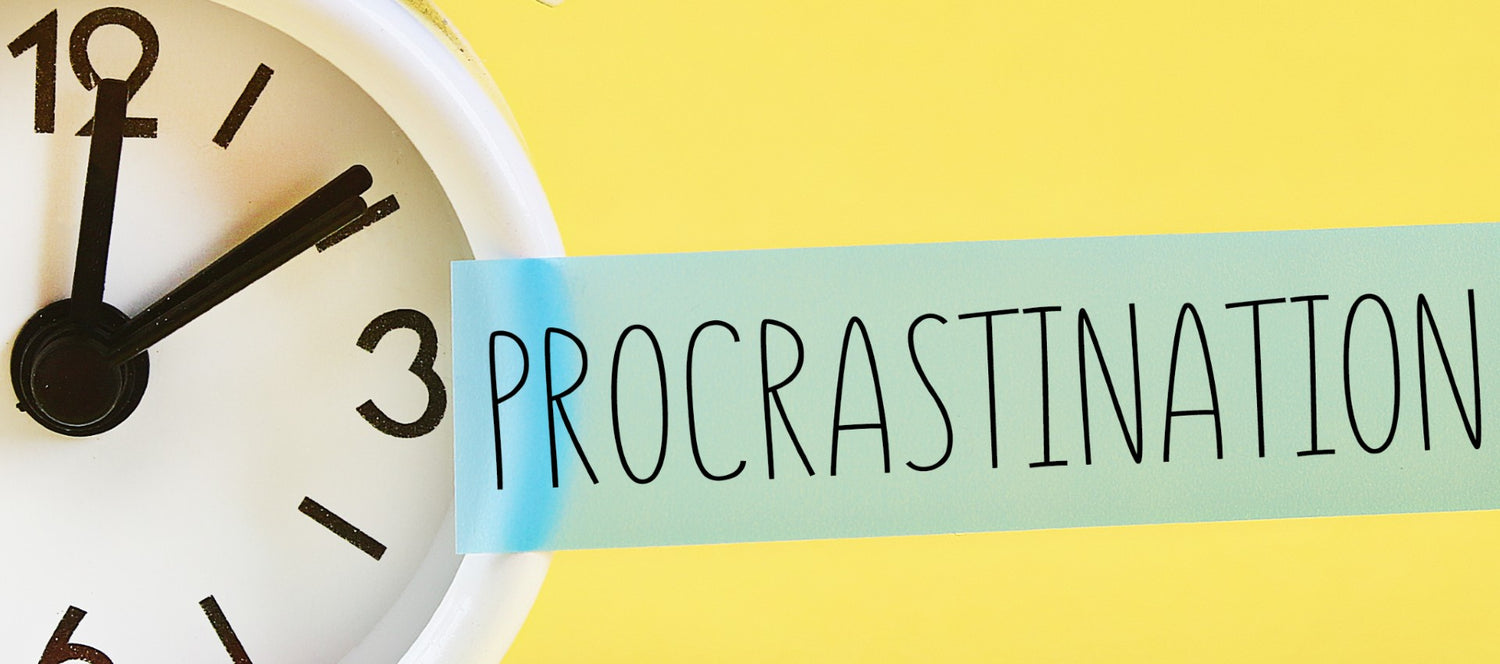We all procrastinate more than we should, particularly regarding certain tasks and projects, you know, those things that you just keep putting off but for some reason you just pretend to ignore them even though they make you feel really guilty!
You’re only human
Even if you think that you’re a logical person, chances are you’re not as logical as you think you are, and certainly not all the time – our emotions play a huge role in our behaviours and decisions, often without us being aware.
We can be overly hard on ourselves about a lack of motivation and willpower to get things done but it is very hard to get through life on willpower alone; you’ll end up exhausting yourself. Instead we need to break bad habits and create new, positive routines that become a part of our daily life.
Breaking bad habits
We often hold on to unhelpful beliefs such as ‘I work and perform much better under pressure this is why I leave things until the last minute’. Try to objectively critique yourself in terms of how you approach tasks to ascertain what bad habits you display that need breaking.
Our brains are marvellous but can also sometimes hold us back. Once we have done something repeatedly, our brain learns this pattern (habit) and goes into ‘auto pilot’ without us realising. This is great if the pattern of behaviour is positive but not so great if it’s a bad habit – such as procrastination!
What we need to do is create new positive pathways that supersede the old negative behaviour patterns.
Creating routine
Routines are the foundation for creating cues for action and positive routines create positive habits. A habit is something that we do repeatedly and becomes the ‘norm’ and thereby easy for us to do.
The 2 minute strategy
This strategy is taken from David Allen's bestselling book- Getting Things Done.
Part 1 — if it takes less than two minutes, then do it now.
Part 2 — when you start a new habit, it should take less than two minutes to do.
There are so many things that we could get done if we just got on and did them – quickly put a load of washing on, file away some paper work, – the idea of this strategy is that if a task takes less than two minutes to complete, then follow the rule and do it right now.
Obviously, not all of your goals can be accomplished in less than two minutes but every goal can be started in 2 minutes or less and that’s the purpose behind this little rule. The 2-Minute Rule works for big goals as well as small goals because of the inertia of life. Once you start doing something, it’s easier to continue doing it.
For example, if you want to write regular blog posts for your business just write one sentence (2-Minute Rule), and you’ll often find yourself writing for an hour.
If you want to get fitter then put your running shoes on and get out the door (2 minute rule) – when you think about it, it all makes sense!
Reward
Often procrastination occurs from fear. Be honest with yourself, what is actually stopping you from doing a particular task? Often it can be fear of failure but we need to train our brain to see that on the other side of that fear is success.
As humans we are governed by our hormones. When we do something that we enjoy, endorphins are released, making us feel good. If we reward ourselves for progress towards our goals (whether that is a cup of coffee once you’ve sent an email or a meal out for hitting a target) we are training our brain to repeat the positive behaviours which should then become habits.
To summarise
- Stop punishing yourself for procrastinating
- Tackle your most important task for 15 minutes
- Break tasks down into small chunks
- Start your day with the hardest tasks
- Give yourself a pep talk for motivation
- Aim for progress not perfection
- Promise yourself you'll get a reward when it's done


